Electric vehicles are changing the way we drive — but charging them can still feel confusing, especially when it comes to connectors and compatibility. One of the most common questions new EV owners ask is:
“Is my car compatible with a J1772 charger?”
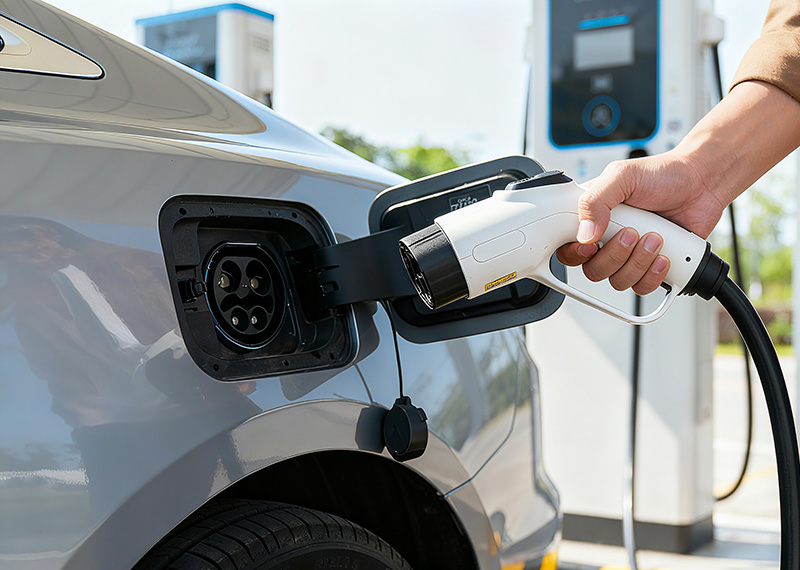
If you’ve ever stood in front of a charging station wondering whether that plug fits your car, this guide is for you.
At AnengJi, we’ve been working with EV charging systems for years — from residential chargers to large-scale commercial networks. We’ve helped thousands of users choose the right EVSE (Electric Vehicle Supply Equipment) for their cars. This guide will walk you through what J1772 means, which vehicles use it, and how it compares to other charging standards.
What Is J1772?
J1772, also known as SAE J1772 or Type 1, is the standard plug type for Level 1 and Level 2 AC charging in North America.
Developed by the Society of Automotive Engineers (SAE), this connector is used by nearly every electric vehicle (EV) and plug-in hybrid (PHEV) sold in the United States and Canada — except Tesla.
In simple terms, if you drive an electric car that’s not a Tesla, chances are it uses a J1772 plug for AC charging.
This includes popular models from Nissan, Ford, Chevrolet, BMW, Honda, Toyota, Kia, Hyundai, and Volkswagen.
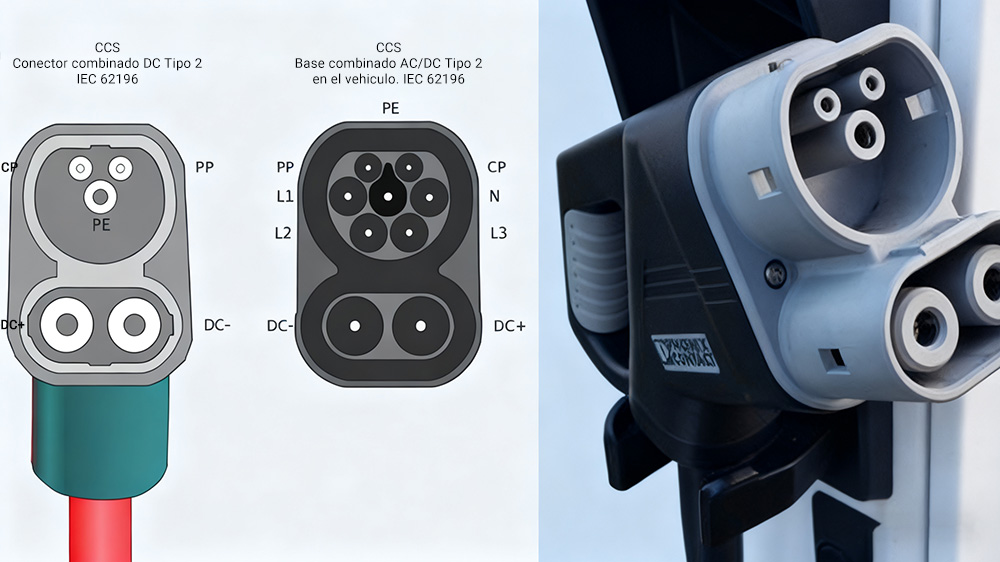
- The J1772 connector is easy to recognize:
- It has five pins and a sturdy round handle,
- It supports single-phase AC power,
- It’s designed for charging up to 80 amps,
- And it fits perfectly into the majority of Level 2 EV chargers across North America.
How J1772 Charging Works
When you plug a J1772 connector into your vehicle, several smart systems activate before the current starts flowing.
Here’s a simplified breakdown of what happens:
- Communication handshake:The charger and vehicle exchange signals through the control pilot pin to confirm that both sides are ready and safe to start charging.
- Power delivery:Once verified, the charger delivers AC power through the two main pins (Line and Neutral). The vehicle’s onboard charger then converts this AC power into DC electricity to charge the battery.
- Temperature and safety checks:The J1772 system includes built-in protection to prevent overheating, short circuits, and overcurrent situations.
- Charge completion and release:When the battery reaches the target level, the car signals the charger to stop delivering current. You can then safely unplug the connector.
Because of these built-in communication and safety layers, J1772 is one of the most reliable and widely trusted charging standards in North America.
Why J1772 Matters for EV Drivers
The J1772 standard plays a key role in making public charging consistent and convenient.
Before it was introduced, EV manufacturers used a mix of proprietary connectors, making public charging networks hard to use.
With J1772, you can:
- Charge almost any non-Tesla EV at home or in public stations,
- Use the same connector brand-to-brand,
- Switch between Level 1 (120V) and Level 2 (240V) chargers without adapters,
- Enjoy safe, standardized charging performance verified by SAE.
In other words, the J1772 standard ensures that drivers can rely on a unified charging system, whether they’re plugging in a Chevy Bolt, Toyota Prius Prime, or Hyundai Ioniq 5.
At AnengJi, all our Level 2 chargers are fully J1772-compliant, ensuring seamless compatibility with nearly every major EV model in North America.
Level 1 vs. Level 2 J1772 Charging
| Feature | Level 1 (120V) | Level 2 (240V) |
|---|---|---|
| Connector Type | J1772 | J1772 |
| Power Output | 1.4 kW | 3.3 – 19.2 kW |
| Charging Speed | ~5 miles of range/hour | 20–40 miles of range/hour |
| Circuit Requirement | Standard wall outlet | Dedicated 240V circuit |
| Use Case | Overnight home charging | Home, workplace, public stations |
For most EV owners, Level 2 J1772 charging is the ideal solution — fast, convenient, and compatible with nearly every model on the market.
That’s why AnengJi’s home and commercial chargers are designed with J1772 connectors as the standard option, offering plug-and-play convenience right out of the box.
The Evolution of J1772
The first version of the J1772 standard appeared in the early 2000s, supporting up to 6.6 kW of power. Over the years, the design has evolved to handle higher current and greater efficiency.
Today’s SAE J1772-2017 version supports up to 19.2 kW (240V, 80A) and includes enhanced communication protocols for smart charging and load management — key for energy-efficient homes and commercial fleets.
Many modern J1772 chargers, including those from AnengJi, are equipped with Wi-Fi or OCPP functionality, allowing users to track energy usage, schedule charging sessions, and integrate solar or time-of-use energy savings.
J1772 Compatible Vehicles by Brand (2025 Updated List)
The SAE J1772 connector has become the default plug for nearly every EV and plug-in hybrid sold in the U.S. and Canada — except Tesla. Below is the most up-to-date list of J1772 compatible vehicles for 2025, organized by brand.
Whether you’re shopping for a home charger or managing a commercial fleet, this reference will help ensure you’re using the right plug every time.
1. Nissan
Nissan has been one of the strongest supporters of the J1772 standard since the early days of EV adoption.
Every Nissan LEAF and Ariya uses the J1772 connector for AC charging, while DC fast charging is supported through CHAdeMO (for older LEAF models) or CCS (for newer models).
Compatible Models:
Nissan LEAF (All years)、Nissan Ariya (2023–present)
2. Chevrolet (GM)
Chevrolet’s EV lineup — from the affordable Bolt to the upcoming Silverado EV — has always supported J1772 for AC charging.
Compatible Models:
Chevrolet Bolt EV / Bolt EUV、Chevrolet Volt (Plug-in Hybrid)、Chevrolet Spark EV、Chevrolet Blazer EV (AC via J1772)、Chevrolet Silverado EV (AC via J1772)
3. Ford
Ford has fully embraced J1772 for both its hybrids and fully electric models. With Ford’s commitment to electrification, every plug-in model from the Escape to the Mustang Mach-E uses a J1772 connector.
Compatible Models:
Ford Mustang Mach-E、Ford F-150 Lightning、Ford Escape Plug-In Hybrid、Ford Fusion Energi、Ford C-Max Energi
4. Toyota
Toyota’s plug-in hybrids (PHEVs) and upcoming BEVs all follow the J1772 standard for AC charging.
Compatible Models:
Toyota Prius Prime、Toyota RAV4 Prime、Toyota bZ4X
5. Honda
Honda’s electric and hybrid lineup — though smaller — also relies on the J1772 connector for Level 1 and Level 2 charging.
Compatible Models:
Honda Clarity Plug-In Hybrid、Honda Clarity Electric、Honda Accord Plug-In Hybrid
6. Hyundai / Kia / Genesis
Hyundai Motor Group, including Kia and Genesis, equips all North American models with a J1772 port for AC charging. These brands use CCS Combo 1 (J1772 + DC pins) for fast charging.
Compatible Models:
Hyundai Ioniq 5 / Ioniq 6、Hyundai Kona Electric、Hyundai Tucson Plug-In Hybrid、Kia EV6 / EV9、Kia Niro EV / Plug-In Hybrid、Genesis GV60 / Electrified G80
7. BMW / MINI
BMW and MINI plug-in hybrids and EVs use J1772 for AC charging.
Compatible Models:
BMW i3、BMW i4 / i7 / iX、BMW X5 xDrive45e、MINI Cooper SE
8. Volkswagen / Audi / Porsche
All VW Group brands in North America use the J1772 + CCS Combo 1 standard for AC and DC charging.
Compatible Models:
VW ID.4 / ID. Buzz、Audi e-tron / Q4 e-tron / Q8 e-tron、Porsche Taycan / Macan EV
9. Other Brands Using J1772
| Brand | Models |
|---|---|
| Lucid Motors | Air, Gravity |
| Polestar | 2, 3 |
| Volvo | XC40 Recharge, C40, EX30 |
| Mazda | MX-30 |
| Rivia | R1T, R1S |
| Fisker | Ocean |
| Subaru | Solterra |
| VinFast | VF 8, VF 9 |
Almost every North American-market EV or plug-in hybrid uses a J1772 inlet for AC charging — proving how universal this connector has become.
Tesla and J1772 Compatibility
Tesla uses its own proprietary connector in North America, known as the Tesla plug, which combines both AC and DC charging pins into a single port.
However, that doesn’t mean Tesla owners can’t use J1772 chargers — far from it.
Tesla includes or sells a J1772-to-Tesla adapter that allows any Tesla vehicle to charge from a J1772 Level 1 or Level 2 station.
How It Works:
- Plug the J1772 connector into the adapter.
- Insert the adapter into your Tesla’s charge port.
- Charging begins immediately, with full communication between the EVSE and your Tesla.
Tesla’s onboard charger automatically manages the power draw, typically up to 48A on a 240V circuit.
This setup is perfect for home chargers, workplaces, or hotels equipped with J1772 stations.
Which Teslas Can Use J1772 Chargers?
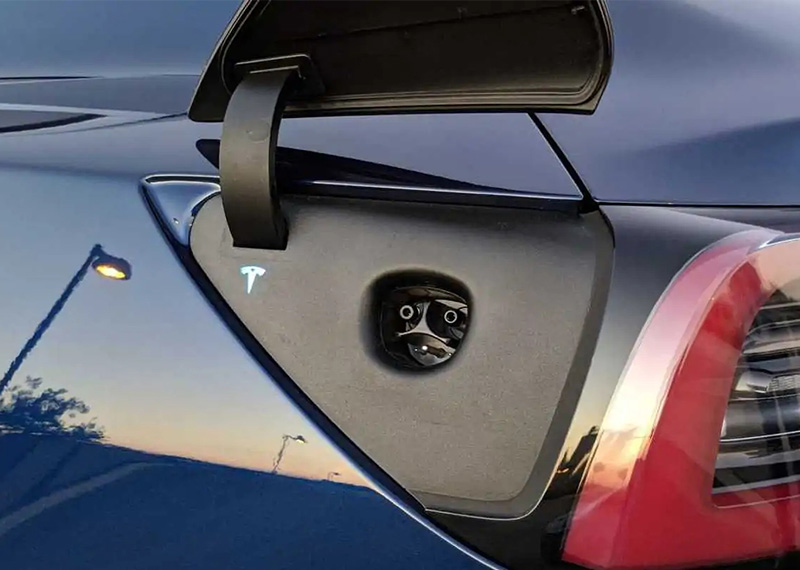
- Tesla Model 3
- Tesla Model Y
- Tesla Model S
- Tesla Model X
Each of these models works flawlessly with a J1772 adapter, making the standard even more universal across brands.
From J1772 to NACS: The Future of Charging Standards
In 2024, many automakers announced plans to adopt the North American Charging Standard (NACS) — the same connector Tesla uses.
However, that transition will take years to complete.
Until then, J1772 remains the primary AC charging interface across the continent. Even when new vehicles begin adopting NACS, adapters and dual-standard chargers will ensure backward compatibility.
That’s why AnengJi continues to manufacture dual-protocol chargers, supporting both J1772 (Type 1) and NACS connectors to serve current and next-generation EVs.
Level 2 Charging at Home and Work
One of the biggest advantages of owning a J1772-compatible EV is the flexibility to charge it almost anywhere. Level 2 charging stations — which operate at 240V — provide a much faster and more efficient way to top up your vehicle. A standard 7kW or 11kW charger can fully recharge most EVs overnight or in a few hours during the day.
AnengJi offers a wide range of Level 2 J1772 chargers, from 7kW single-phase models for residential use to 14kW three-phase units ideal for fleets, workplaces, and parking facilities. All our chargers support intelligent load management, Wi-Fi and OCPP connectivity, and dynamic billing functions — ensuring reliable, future-proof operation wherever you install them.
For home users, J1772 chargers allow convenient overnight charging, eliminating frequent trips to public stations. For businesses and property owners, they add tangible value by attracting EV-driving customers and tenants.
Public Charging with J1772
In North America, most public AC charging points use the J1772 plug, which makes it extremely easy for EV drivers to charge on the go. You’ll find compatible charging points at workplaces, parking garages, retail stores, and highway rest stops. Simply plug in, tap your RFID card or app, and let your vehicle charge.
The growing J1772 network means drivers of brands like Nissan, Ford, Chevrolet, and Toyota can travel freely without worrying about plug compatibility. Even Tesla owners can access these stations with the official adapter.
AnengJi chargers are fully compliant with SAE J1772 standards and can be integrated into both private and public charging networks. Our commercial AC chargers support OCPP 1.6J and 2.0.1 protocols, making them compatible with most EV charging management platforms in the U.S.
Advantages of J1772-Compatible Chargers
The J1772 standard has remained dominant for over a decade, and for good reason. Here’s why it continues to be the backbone of North American AC charging infrastructure:
- Universal Compatibility – Works with nearly every non-Tesla EV sold in North America.
- Safety and Reliability – Includes ground fault protection, temperature sensors, and secure locking mechanisms.
- Ease of Use – Plug-and-play operation with an ergonomic connector design.
- Smart Features – Supports advanced communication between the charger and the vehicle for optimized current flow.
AnengJi integrates all these features into every J1772 charger, along with optional networked management for monitoring, billing, and data analysis.
Choosing the Right J1772 Charger
When selecting a J1772 EV charger, consider where and how it will be used:
- Home Use: A 7kW single-phase wall-mounted unit is compact, affordable, and ideal for overnight charging.
- Commercial Use: Dual-socket or pedestal-style models (11kW–14kW) support higher throughput and user authentication.
- Fleet or Workplace: Networked models with OCPP and load balancing can manage multiple vehicles efficiently.
All AnengJi chargers are designed to work seamlessly with J1772-equipped vehicles. Whether you’re setting up a small residential station or deploying hundreds of commercial chargers, we provide end-to-end support — from hardware customization to software integration.
Future-Proof Compatibility
Even as charging technology evolves, J1772 remains relevant. With simple adapters, J1772 chargers can also support future EV platforms, including those transitioning to the new NACS (North American Charging Standard) connectors.
AnengJi’s chargers are already being developed with dual J1772 and NACS support, ensuring you’ll be ready for whatever comes next in the EV landscape.
FAQs about J1772-Compatible Vehicles and Chargers
Q1: Can I charge my Tesla with a J1772 charger?
Yes. All Tesla vehicles come with or can use a J1772-to-Tesla adapter, allowing you to charge at any J1772-compatible station.
Q2: Are J1772 chargers safe for outdoor installation?
Absolutely. AnengJi J1772 chargers are IP65-rated for dust and water protection, suitable for garages, parking lots, and outdoor commercial environments.
Q3: What charging speed can I expect?
Depending on your charger’s power rating and your vehicle’s onboard charger, you can expect around 20–40 miles of range per hour of charging using a Level 2 J1772 station.
Q4: Is J1772 being replaced by NACS?
Not immediately. While many automakers are adopting NACS, J1772 will remain the standard for AC charging for years. Dual-standard chargers like AnengJi’s ensure continued compatibility.
Conclusion
If you own or plan to buy an electric vehicle in North America, the J1772 connector is the key to flexible, reliable, and accessible charging. With broad compatibility and proven safety, it’s the standard that powers millions of EVs every day.
At AnengJi, we’re proud to manufacture high-quality J1772 chargers that combine smart technology, robust safety, and sleek design. Whether you’re an EV owner, business operator, or charging service provider, our solutions are built to keep your energy flowing — today and in the future.
[post_navigation]

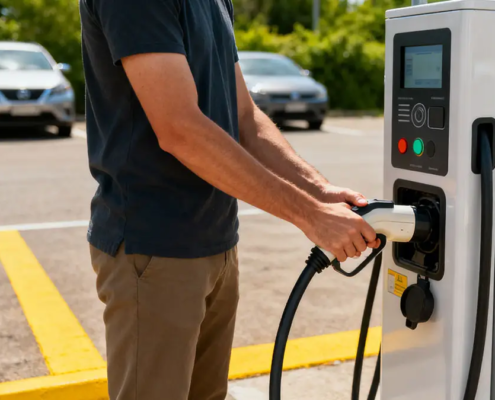
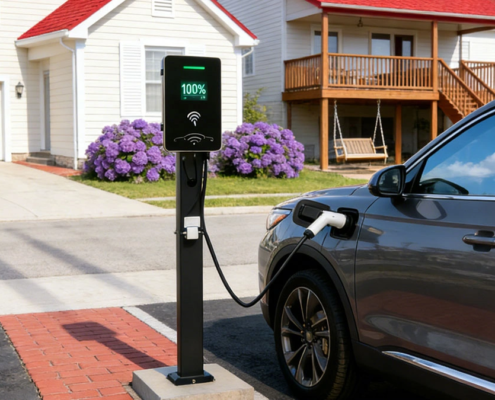
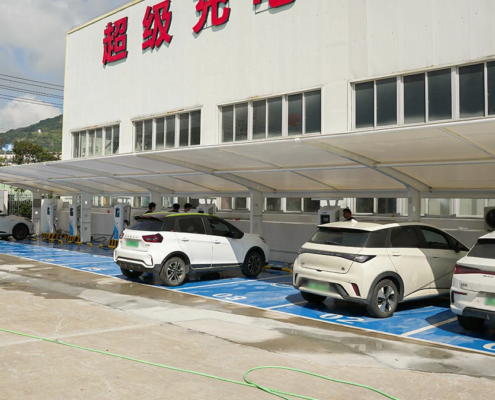


Leave a Reply
Want to join the discussion?Feel free to contribute!